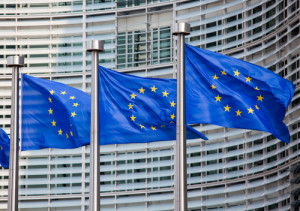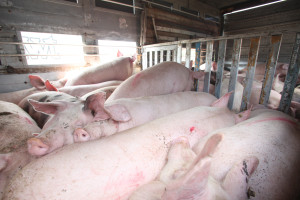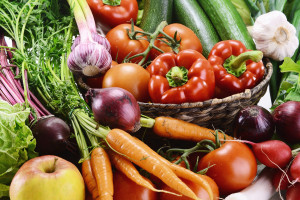Weltlog 25 Januar 2016
Die Niederlande hat derzeit den Vorsitz im Rat der Europäischen Union. Der Tierschutz sollte, während der niederländischen Ratspräsidentschaft, Priorität haben! Die EU Ratspräsidentschaft würde nämlich eine ideale Gelegenheit bieten etwas zu unternehmen, z.B. wegen den viel zu langen Tiertransporten durch Europa, oder den rumänischen Straßenhunden, die massenhaft brutal getötet werden. Die PvdD hatte letzte Woche, während der Debatte mit Ministerpräsident Rutte im Europäischen Parlament, als einzige Partei um Aufmerksamkeit für die Notlage der Tiere gebeten.
Die niederländische Regierung hat vor einigen Monaten versprochen, den Tierschutz während der niederländischen Ratspräsidentschaft in Europa, auf die Tagesordnung zu setzen. Meine Kollegin Anja Hazekamp, Abgeordnete der PvdD in Europa, und ich, werden selbstverständlich gut im Auge behalten, ob dem auch nachgekommen wird!

Am 6. April wird in den Niederlanden ein Referendum, über das geplante Assoziierungsabkommen zwischen der Europäischen Union und der Ukraine, gehalten. Die Partei für die Tiere ist gegen den vorgeschlagenen Vertrag.
Momentan herrscht große Kontroverse um dieses Abkommen. Daher ist es eine hervorragende Idee, die Bürger um ihre Meinung zu fragen. Allerdings scheinen, sowohl die Ukraine als auch die Europäische Union, das Assoziierungsabkommen in Wirklichkeit bereits auszuführen, obwohl es noch keine Ratifizierung gibt! Womit die Werte der Demokratie mal wieder beiläufig beiseite geschoben werden. Was, wenn das Ergebnis des niederländischen Referendum ‘Nein’ lautet? Wie kann man dann noch zurück? Unserem Ministerpräsidenten habe ich hierzu Parlamentsfragen gestellt. Fortsetzung folgt.

Studien haben gezeigt, dass in den Pelzkrägen von Kinderjacken hohe Konzentrationen hochtoxischer Substanzen, Formaldehyde und Ethoxylate, zu finden sind. Die gemessenen Konzentrationen an Formaldehyden und Ethoxylaten in den untersuchten Pelzkrägen waren manchmal sogar 30 mal höher, als die Textilrichtlinien erlauben. Derart hohe Konzentrationen können bekanntermaßen stark Krebserregend sein, zu Irritationen führen und der Fruchtbarkeit schaden. Pelz ist also nicht nur ein grausames, unnötiges Modeprodukt, sondern auch eine Gefahr für den Verbraucher, vor allem für Kinder. Ich habe den Staatssekretär aufgefordert, die Jacken vom Markt zu nehmen und den Verbraucher vor den Gesundheitsrisiken zu warnen. Seit kurzem sind Pelztierzüchtereien in den Niederlanden verboten. Als nächster Schritt, sollte der Verkauf von Pelzprodukten verboten werden.
Ich möchte auch noch eine gute Nachricht mit Ihnen teilen. Hongkong hat angekündigt, den Handel mit Elfenbein zu verbieten und den illegalen Handel strenger anpacken zu wollen. Das sind großartige Neuigkeiten für den Schutz der Elefanten und ein starkes Signal an den Rest der Welt.

Das neue Jahr ist schon wieder ein paar Wochen alt, also ist es eigentlich ein bisschen spät jetzt noch mit guten Vorsätzen zu beginnen. Trotzdem würde ich ihnen gerne den Artikel “5 Wege, in 2016, klimafreundlicher zu essen” ans Herz legen. Denn weniger Fleisch, mehr Gemüse und sich öfter für lokale und biologische Produkte zu entscheiden, ist nicht nur gut für die Gesundheit, sonder auch für die Umwelt. Wenn das keine win-win-Situation ist…
Bis zum nächsten Mal!
Gruß, Marianne
The Netherlands is currently President of the European Union. During this presidency, animal welfare should have first priority. After all, this EU Presidency is the perfect opportunity to do something about the long-distance animal transport within Europe or the Rumanian stray dogs being brutally slaughtered on a large scale. Last week during a European Parliament debate with Prime Minister Mark Rutte, the Party for the Animals was the only party to demand attention for the fate of animals.
A few months ago, the Dutch government made a promise to promote the idea of animal welfare in Europe during its presidency. Naturally, my colleague and the Party for the Animals’ MEP Anja Hazekamp and I will closely monitor whether this promise is kept!

On 6 April, a referendum will be held in the Netherlands on the planned association agreement between the European Union and Ukraine. The Party for the Animals is against the agreement.
At present, there is a lot of controversy around this agreement, which is why I believe it would be a good idea to ask citizens for their opinion. However, it appears that both Ukraine and the European Union have long started implementing the association agreement, despite the fact that it has not even been ratified yet! This way, the values of democracy are simply brushed aside once again. What if the outcome of the Dutch referendum will be ‘Against’? Is there still a way back? I have put forward parliamentary questions on this subject to our Prime Minister. To be continued.

Research has shown that the fur collars on children’s coats contain high concentrations of the highly toxic chemicals formaldehyde and ethoxylate. In some cases, the levels of formaldehyde and ethoxylate measured on the examined collars were up to 30 times higher than is permitted by the Textile Regulations. Such high concentrations are known to be extremely carcinogenic, to cause irritation and impair fertility. So fur is not only a very cruel and unnecessary fashion product, it is also a danger to the consumer, particularly to children. I have asked the State Secretary to take these coats off the market and warn consumers of their health risks. Fur farms have recently been prohibited in the Netherlands. Let’s stay the course by now dealing with the sale of fur.
Then there is some good news that I would like to share with you. Hong Kong has announced plans to ban the trade in ivory and impose heavier penalties on illegal trading. This is great news for the conservation of the elephant and it sends a strong message to the world.

It has been several weeks since the turn of the year, so it is a bit late for New Year’s resolutions. Nevertheless I would like to share with you this article entitled ‘5 ways to be a climate-friendly eater in 2016’. After all, eating less meat, more vegetables and more local and organic products not only benefits your health, but also your living environment. If that is not a win-win situation, I don’t know what is!
Until next time!
Kind regards, Marianne